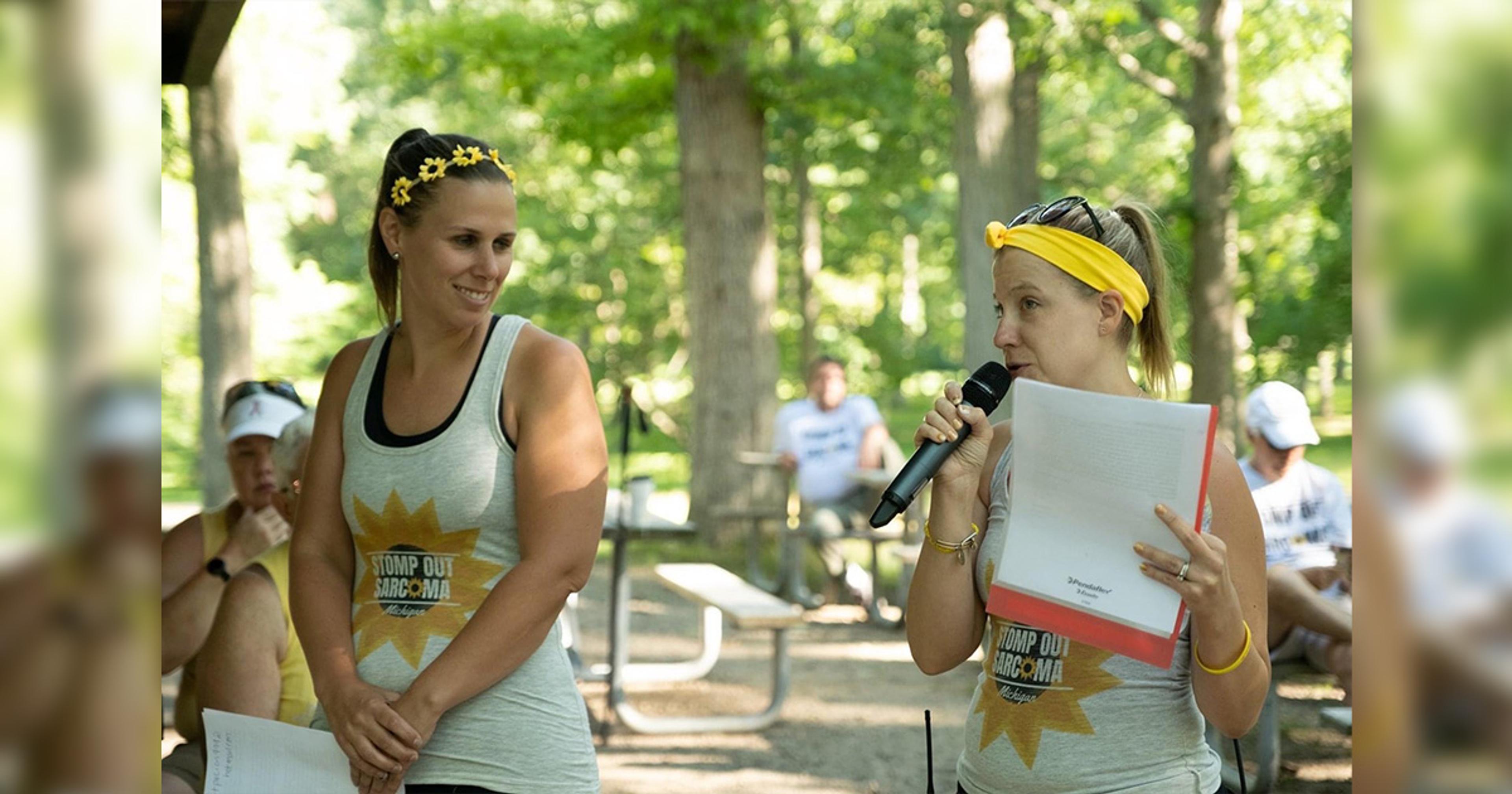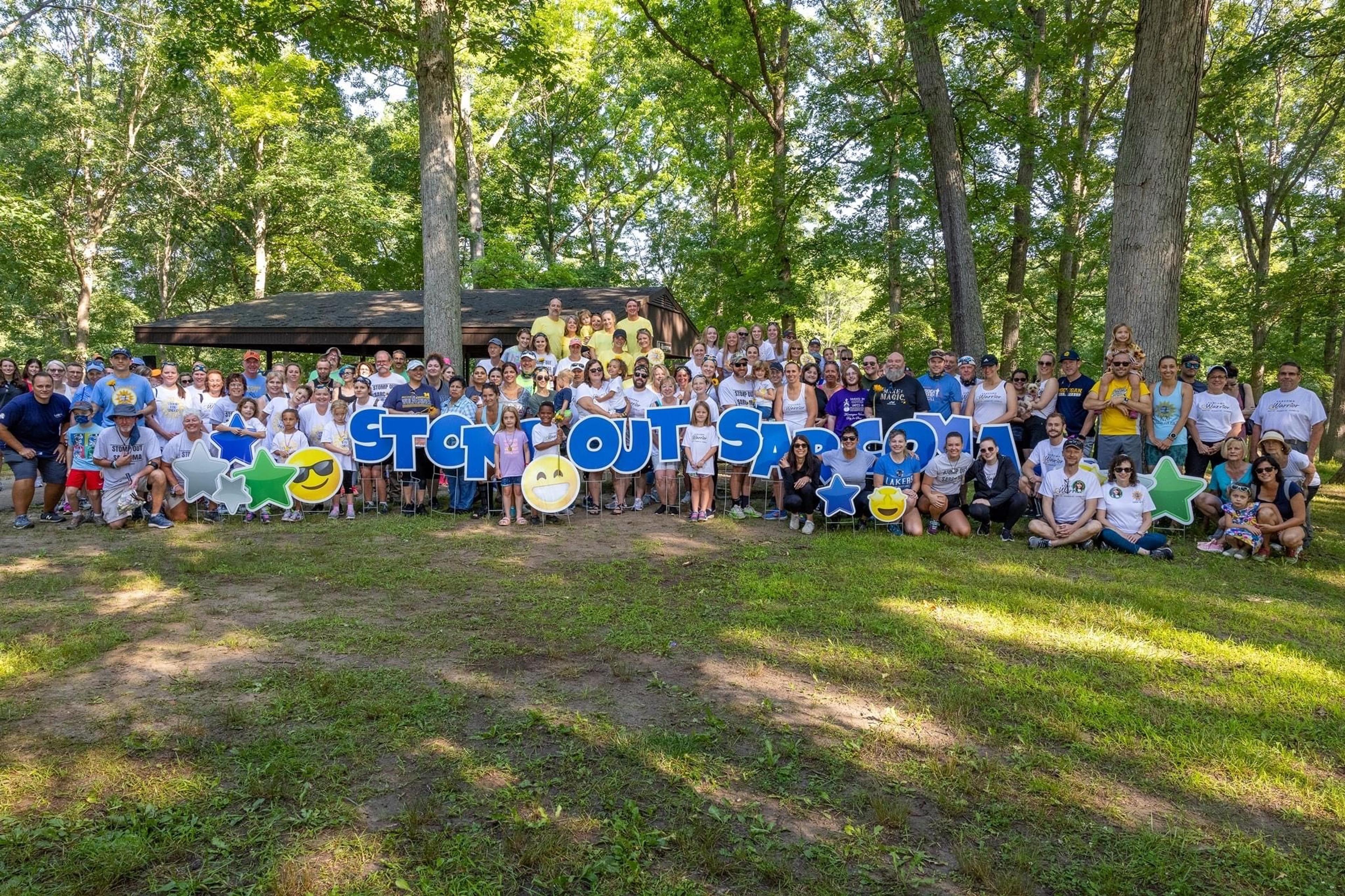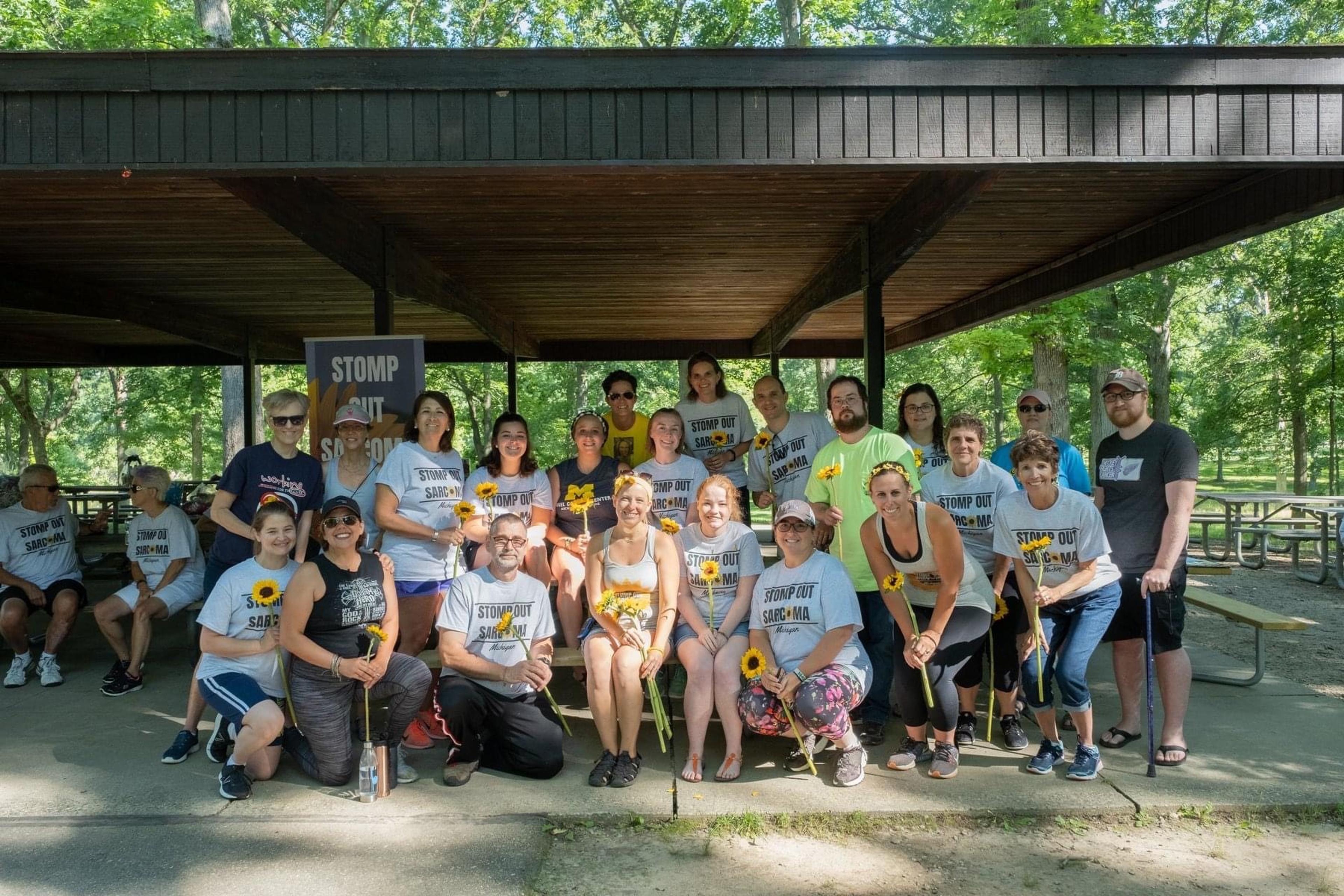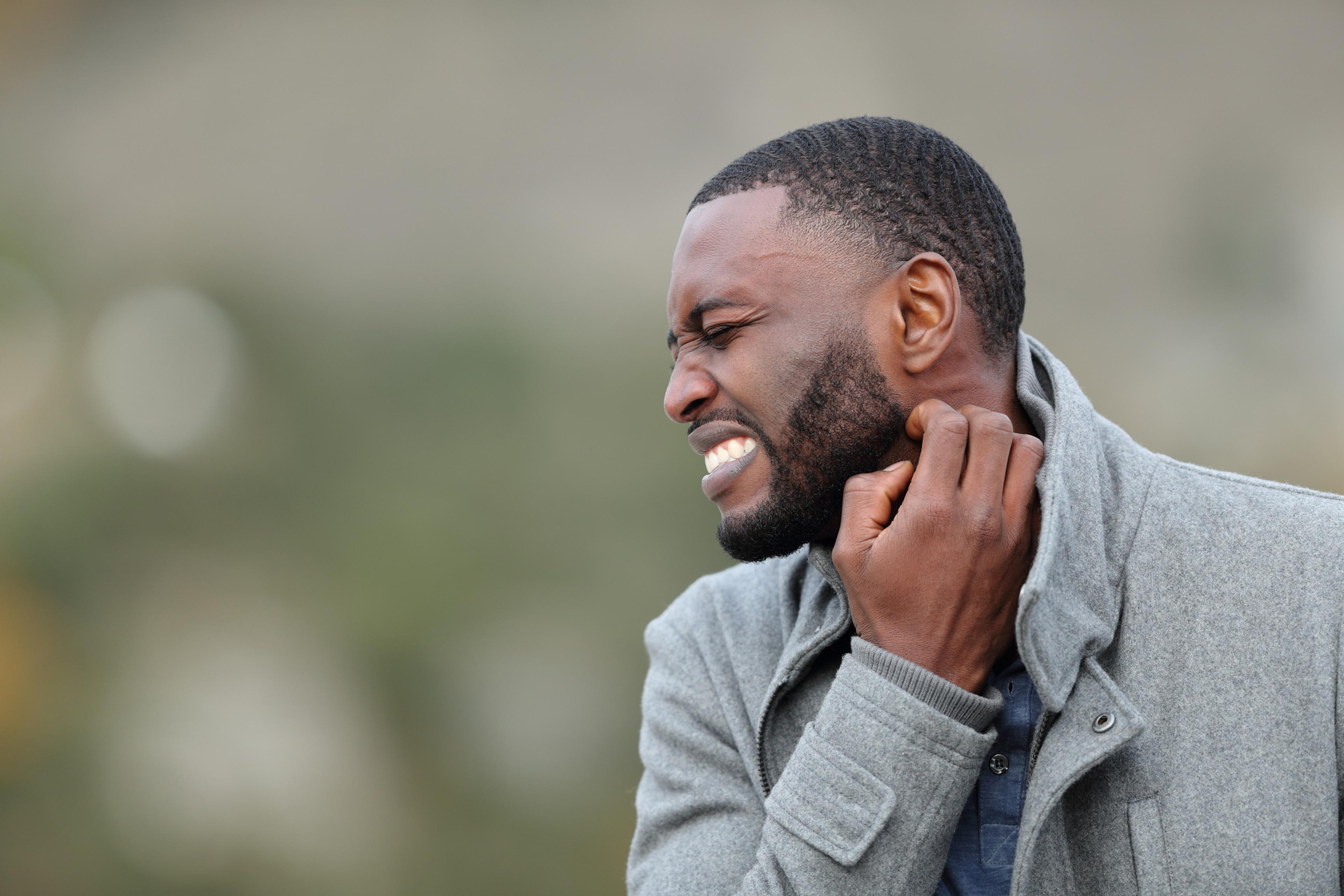Michigan Women Look to Help Others ‘Stomp Out’ Sarcoma After Overcoming the Rare Cancer
Jake Newby
| 5 min read

Fighting a cancer as rare as sarcoma can be a lonely battle. If you’re diagnosed with it, you probably don’t know many people who are even aware of sarcoma, let alone anyone who has been affected by it in some way. Sarcoma – a rare type of malignant tumor that grows in the bone and the body’s connective tissue – makes up less than 1% of adult cancer diagnoses.
Michigan residents Rachael Privett and Ann Maxwell-DePouw fought those lonely fights separately, but their journeys later united them. Today they are board directors of Stomp Out Sarcoma, a Michigan non-profit dedicated to spreading awareness and raising funds, in part, to develop clinical trial treatment methods for sarcoma at the University of Michigan. There are more than 70 known subtypes of sarcoma, making it a tricky cancer to treat.
“There is so much unknown about this disease,” Privett said, during an interview with Blue Cross Blue Shield of Michigan (BCBSM). “Because it’s so rare, it doesn’t receive as much funding as say, breast cancer or heart disease, because it doesn’t affect as many people.”
It’s unclear what causes most sarcomas, and risk factors for the disease vary. Inherited genetic conditions and exposure to radiation are two of those risk factors, but neither were at the root of Privett and Maxwell-DePouw’s respective cases.

How I knew I had sarcoma: Two Michigan women share their story
When she was just 20 years old Privett developed what she described as a strange knee pain. She sought help and had X-rays taken, but they didn’t uncover anything of note. Later, she tripped and fell on the affected knee and underwent a second set of X-rays that revealed the rare cancer.
“I had periosteal osteosarcoma, which is a type of bone cancer that’s not as aggressive as conventional osteosarcoma,” Privett said. “It’s on the outside of the bone so it’s a little bit different. But that’s what was causing my range of motion problems.”
Finding a center or team of specialists with knowledge and data of sarcoma isn’t easy. At that time, Privett lived near the University of Michigan Rogel Cancer Center, a National Cancer Institute (NCI)-Designated Cancer with experience treating sarcoma. She was able to receive a swift diagnosis and treatment plan, which, for her case of periosteal osteosarcoma, was surgery.
“They resected part of my femur and the tumor and they replaced it with donor bone,” Privett explained. “They had such good margins; I actually didn’t have to go through any chemotherapy or radiation. The cancer cells didn’t go as deep as they cut, so the margins of what they did surgically was clean, they felt they got all the cancer.”

Privett’s pain persisted for about four to six months prior to her diagnosis in October of 2003. Her surgery was in January 2004. Maxwell-DePouw’s battle with a soft tissue variant of the cancer spanned nine months in 2012. At the time of diagnosis, she was just 24 years old. Almost all sarcoma battles are different, as are the treatment methods. Maxwell-DePouw’s treatment involved 12 rounds of chemotherapy.
How fast does sarcoma grow?
Sarcoma can sometimes show physical signs, often appearing as a lump or bump on the arms or legs. This isn’t always the case, though, and it wasn’t the case for Privett or Maxwell-DePouw, speaking once again of the mysterious nature of sarcoma and the fleeting characteristics that define it.
“I was living in Austin, Texas and I started having some pain in my leg,” Maxwell-DePouw recalled. “Long story short, after a lot of follow-ups and this and that with doctors, they felt I had a benign nerve sheath tumor, and they weren’t going to remove it.”
After various rounds of pain treatment, she had surgery in Houston. There, doctors discovered her Ewing sarcoma tumor, a malign tumor that usually begins growing in a bone and can aggressively spread to additional areas of the body if untreated.
“I did 11 more rounds in Michigan and six weeks of radiation,” Maxwell-DePouw said. “They couldn’t take the tumor out because of how it was wrapped around my nerves. They were afraid it might paralyze me. So, we went the chemo and radiation route.”
Chemotherapy was successful for Maxwell-DePouw, whose continued follow-up visits at U of M once she was cancer-free forged, a natural path for her Stomp Out Sarcoma inclusion. She soon became a co-board director alongside Privett.
The importance of a sarcoma support system
Privett has relished her time with Stomp Out Sarcoma, which hosts an annual 5K every July during Sarcoma Awareness Month to raise funds for the University of Michigan's Rogel Cancer Center Sarcoma Research Fund.
She and Maxwell-DePouw are there for community members affected by sarcoma year-round, but since the 5K is the organization’s big tentpole event, it provides a great opportunity to bond with those with shared experiences.
“I can meet people and talk with people and enjoy this type of comradery,” Privett said. “Osteosarcoma can sometimes be a younger person’s cancer. Just having the awareness out there that this happens and providing ways to connect that weren’t there 20 years ago. I couldn’t hop on Facebook and search up a group like this 20 years ago. My diagnosis felt very isolating.”
Maxwell-DePouw believes that the small, intimate nature of Stomp Out Sarcoma makes the community much more tight-knit.
“I happen to know two people close to my age who have had it, but a lot of people don’t have that,” Maxwell-DePouw said. “I always tell everyone that’s ever diagnosed with cancer that attitude is everything. Having a positive attitude can greatly affect everything in my opinion. Someone told me that before and I took it and ran with it, and now I tell everyone who comes to me the same thing.”
The 2023 Stomp Out Sarcoma 5K takes place on Sunday, July 30 between 8 a.m. and noon. Learn more about the run at this link.
Photo credit: Stomp Out Sarcoma/Rachael Privett
Read more inspiring health journeys at MIBP:





